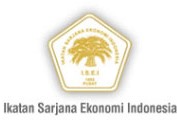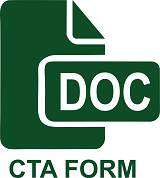The Influence of Socioeconomic Conditions on the Healthy Life Behavior
(1) Universitas Negeri Semarang
(2) Universitas Negeri Semarang
(3) Universitas Negeri Semarang
Abstract
The purpose of this research is to find out the influence of economic, social and availability of information variable on the healthy life behavior of the people in Suruh Sub-district, Semarang Regency. The primary data source is collected by distributing the questionnaires to and by interviewing the people of Suruh Sub-district, Semarang Regency as the research respondents with the research analytical instrument of Probit binary responses regression. The availability of domestic wastewater disposal facilities is the dependent variable, while the household expenditure (economic variable), healthy life motivation (social variable) and maintenance of domestic wastewater disposal system (healthy life behavior) are the independent variables. The results show that the healthy life motivation and maintenance of domestic wastewater disposal system variables have positive and significant influence on the availability of domestic wastewater disposal facilities with ? = 5% and the household expenditure variable has positive and significant influence with ? = 10%. In general, it shows that the economic variable and the household expenditure determine the availability of domestic wastewater disposal facilities in Suruh Sub-district, Semarang Regency as the higher the individual’s income, the higher their allocation to the household expenditure, including to the domestic wastewater management.
Keywords
Full Text:
PDFReferences
Ajzen, Icek. (1991). The Theory of Planned Behaviour. Universitas of Massachusetss at Amherst.Organizational behavior and human decision processes Vol 50, Hal 179-211.
Aue, K., & Roosen, J. (2010). Poverty and health behaviour: Comparing socioeconomic status and a combined poverty indicator as a determinant of health behaviour. In 115th Joint EAAE/AAEA Seminar, September 15-17, 2010, Freising-Weihenstephan, Germany (No. 116401).European Association of Agricultural Economists & Agricultural and Applied Economics Association.
Beni, Martinus T. IGB Arjana, Ruslan. (2014). Pengaruh Faktor-faktor Sosial-Ekonomi Terhadap Perilaku Pengelolaan sampah Domestik Di Nusa Tenggara Timur.. Jurnal Ilmu Lingkungan. Vol 12 No. 2. UNDIP.
Brown, C., Neves-Silva, P., & Heller, L. (2016). The human right to water and sanitation: a new perspective for public policies. Ciencia & saude coletiva, 21(3), 661-670.
Bunnings, Christian. (2013). Does New Health Information Aff ect Healthy life behavior? Does New Health Information Aff ect Healthy life behavior?.Ruhr-Universität Bochum (RUB), Department of Economics University. 150, 44801 Bochum, Germany
Case A, Lubotsky D, Paxson C. (2002). Economic status and health in childhood: The origins of the gradient. American Economic Review. 2002;92(5):1308–1334.
Cesur, R., Dursun, B., & Mocan, N. (2014). The impact of education on health and healthy life behavior in a middle-income, low-education country (No. w20764).National Bureau of Economic Research.
Effendy, Onong Uchyana. (2001) Dinamika komunikasi. Bandung: Remaja Rosdakarya
Febriza, Noni dkk. (2015). Pengaruh Perilaku Hidup Bersih dan Sehat (PHBS), Pendapatan dan Sanitasi Terhadap Kejadian Diare di Kelurahan Meranti Pandak, Rumbai Pesisir Pekanbaru, Jurnal Ilmu Lingkukan, Vol. 9 No. 1 Hal 1978-5283.
Grossman, Gene M & Alan B. Krueger. (1995). Economic Growth and The Enviroment. The Quarterly Journal of EconomicVol. 110, No. 2, pp. 353-377.
Hapsari, Dwi, Putri sari & Julianty Pradono. (2009). Pengaruh Lingkungan Sehat, dan Perilaku Hidup Sehat Terhadap Status Kesehatan. Buletin Penelitian Kesehatan Supplement 2009: 40-49.
Hermawan, Yoni. (2005). Hubungan Antara Tingkat Pendidikan dan Persepsi Dengan Perilaku Ibu Rumah Tangga Dalam Memelihara Kesehatan Lingkunga. Jurnal Lingkungan Hidup, Volume 5 No. 2 Hal 1411-9668.
Notoatmodjo, Soekidjo. (2003). Pendidikan dan Perilaku Kesehatan. Jakarta: PT. Rineka Cipta.
Pampel, F. C., Krueger, P. M., & Denney, J. T. (2010).Socioeconomic Disparities in Healthy life behaviors. Annual Review of Sociology, 36, 349–370.http://doi.org/10.1146/annurev.soc.012809.102529.
Prishardoyo, Bambang & Lesta Karolina Br Sebayang. (2013). Kausalitas Pertumbuhan Ekonomi Daerah: Studi Kasus Kabupaten Semarang dan Kabupaten Kudus. Jurnal UMY.Vol 14 No. 1 hal 18-25.
Rogers, M. Everett. (2003). Difussion of Innovation 5th Edition. New York: Free Press
Sugiharto.(1987). Dasar-dasar Pengelolaan Air Limbah. UI Press. Jakarta
Widoyono. (2008). Penyakit Tropis: Epidemiologi, Penularan, Pencegahan, dan Pemberantasannya. Semarang: Penerbit Erlangga.
Refbacks
- There are currently no refbacks.

This work is licensed under a Creative Commons Attribution 4.0 International License.






